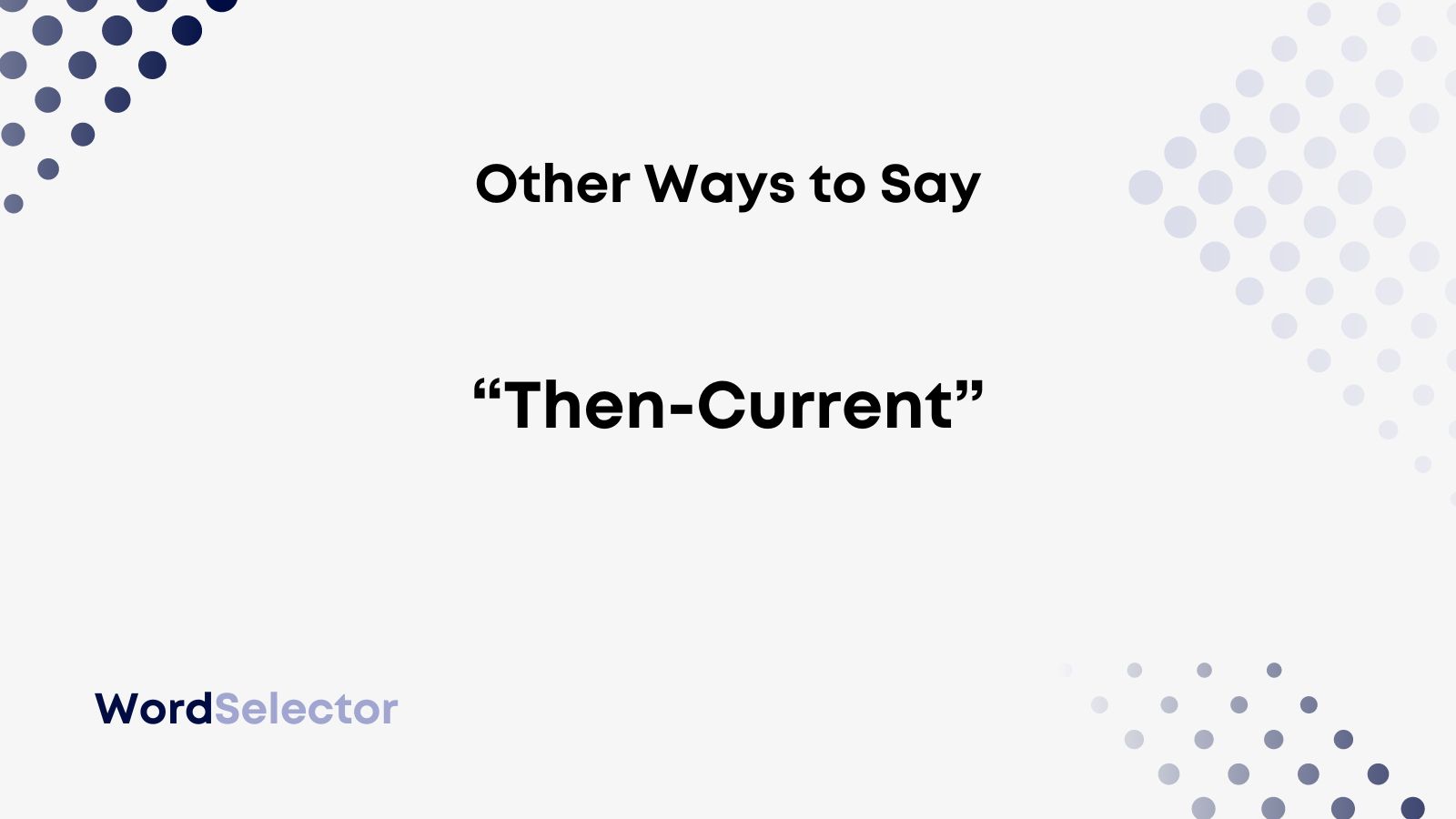So, you’re looking for a word for current in the past but can only think of “then-current.” Well, there are a few other options.
This article will explore some of the best synonyms for “then-current” that might work well in your writing.
Other Ways to Say “Then-Current”
- Prevailing
- At the time
- Previous
- Back then
- Years ago
- Once
- Recent
- Concurrent
- Recently
- Previously
KEY TAKEAWAYS
- “Then-current” is a great way to show that something was up-to-date in the past, but no longer is.
- You should use “prevailing” for a one-word synonym that works in formal settings.
- “At the time” is a useful conversational alternative for written situations.
Feel free to read on to learn more about “then-current” and its synonyms. We’ve explored the best formal and informal options to help you.
We’ve also explained whether “then-current” is correct. You might want to skip to the final section to learn all about the phrase.
Prevailing (Formal)
“Prevailing” is an excellent formal synonym that replaces “then-current.” It is a one-word alternative that is clear and concise. Most readers will understand what you mean when writing it.
The definition of “prevailing,” according to The Cambridge Dictionary, is “existing in a particular place or at a particular time.”
You can use “prevailing” when emailing employees or coworkers. It shows that something that might have been problematic in the past must be dealt with.
Alternatively, you can use it when giving a speech about past problems in the workplace. It shows you are trying to explore new avenues to fix issues that might have arisen by listing previous events.
We certainly recommend using “prevailing” over “then-current.” It’s more effective at showing that something used to be true, even if it no longer is. While both are useful, “prevailing” is a more acceptable choice in professional instances.
Check out these examples to show you how it works:
Dear Mel,
We needed to discuss the prevailing attitudes to the problems. I had no idea things were so bad previously.
All the best,
Jon
I learned about the prevailing issues because I did not want history to repeat itself. That’s why I still do what I can to fix things.
At the Time (Informal)
“At the time” is a useful informal synonym. You should use it to show how something might have changed over time.
For example, you may say “at the time” when discussing historical events with friends. It shows you are talking about things that used to exist that no longer seem relevant in the modern world.
It’s a great way to discuss previous issues, especially if they have since changed.
Generally, “at the time” is useful conversationally rather than professionally. However, it still has its uses in formal English, making it about as effective as “then-current” for professional and informal situations.
Here are a few examples to help you with it:
Things were different at the time because people did not believe in change. We had a tough time changing their minds.
At the time, the rules were different. We’ve come a long way since then, though. I’m so proud!
Is It Correct to Say “Then-Current”?
“Then-current” is correct. It works well in situations when something used to be current. However, there are better alternatives that work well in written contexts.
Most writers think “then-current” is a little redundant or jarring. Since there are plenty of other one-word synonyms, it makes more sense to use something besides “then-current.”
However, if you plan on using it, you must use a hyphen. “Then-current” is always hyphenated to show that something was “current” previously. For example:
- Correct: The then-current issues were too much for the Prime Minister to handle.
- Incorrect: I’m sure they knew about the then current climate problems.
“Then-current” should be hyphenated because it’s a compound adjective. It comes before a noun, meaning the hyphen must link the two words.
Don’t forget to bookmark this page to remind yourself about the synonyms. You never know when you might need another way to say “then-current.”

